Standing amongst her colleagues in the busy atrium to Westminster’s Portcullis House, Rosena Allin-Khan stands out.
Not only because she’s female, young, mixed-race, and stylish, but because she’s excited. She greets us like an old friend who can’t wait to catch up.
Rosena was born and bred in the London Borough of Tooting, and became a local councillor there in 2014. She was working as an NHS doctor and a mother of two toddlers when her local MP Sadiq Khan gave up his seat to become Mayor. She worried that the Conservatives would win the bi-election and hoped someone who really cared about Tooting would stand as Labour candidate. Slowly it dawned on her that she could be that person.
Working at Tooting’s St George’s Hospital, she was in a good position to stand up for public sector workers. But due to external circumstances, the by-election in which she campaigned turned out to be rather unusual.
Baptism of fire
It was June 2016 and Tooting residents had two imminent votes: one for their MP, and one for a certain referendum.
Rosena campaigned hard, and when polling day came she was still knocking on doors, hoping to drum up those last few votes. Then at around five o’clock she received some news that made her doubt everything. At the other end of the country, a young female Labour MP had just been murdered. Jo Cox had been brutally stabbed to death by white supremacist Thomas Mair, in the first murder of a British MP in over 25 years.
Rosena, on the cusp of becoming an MP, was frightened. “At that point nobody knew whether it was indiscriminate targeting of MPs, or what the reason was.” She phoned her husband, who was out canvassing for her, and cried. “Our children didn’t ask for this,” she said to him.
Later that night, she found out she had been elected, but it was a “bitter-sweet” victory, she says. Instead of addressing her win in her victory speech, she gave a tribute to Ms Cox.
After a baptism of fire in politics, things didn’t exactly quiet down. Just seven days later her constituents were back at the ballot box, this time over the EU. They voted overwhelmingly to remain, as Rosena knew they would, which led to her having to make the most difficult decision of her life.

But first the local issues. Poverty in her borough makes Rosena angry. Even though the area has pockets of extreme wealth, she has seen a rise in the use of food banks. “When I hold my constituency surgeries, I see people in the depths of despair, people with real difficulty making ends meet on a day-to-day basis.”
Rosena isn’t exactly a stranger to poverty, though she is quick to describe herself as lucky.
“I come from a single parent family. My brother and I were provided an education against all odds.” She is extremely close to her mother, who is originally from Poland and enjoyed a touch of fame in the Sixties when she sang in one of Poland’s biggest girl bands, called Filipinki. It was on tour in London that Rosena’s mum met her father, who was originally from Pakistan but had come to London to do a PhD. Her parents split up when the children were young, and she recalls that, “my mum had to work three jobs to put food on the table.”
When it comes to her constituents, she is willing to get her hands dirty. In March this year a burst water pipe meant half of Tooting lost access to water, including her own home. She and her team were up all night making sure people got water. She spent hours on the phone with Thames Water and in a Sainsbury’s car park handing out water bottles. As the MP sees it, “You don’t go to sleep when your constituents haven’t got water.”
The NHS and beyond
It’s not just Tooting residents she sees herself as representing though. “When I think about representing my own community, I don’t just think about the Tooting community I think about the NHS community. I think about women, the sisterhood.”
Working for the NHS is something she is extremely proud of – she still does the occasional shift when she can – and she is committed to protecting it. “Fighting for the incredible people who give their lives to make the lives of others better has been a real honour, but has also been met with a lot of challenges and disappointments when I look at what this government is doing.”
The UK health system is not the only one she is familiar with. Rosena has a masters degree in public health, specialising in emergency humanitarian assistance and global health, and has witnessed first-hand some of the worst crises of our generation.
She’s visited Syrian refugees in camps in Jordan, she’s driven to the so-called Calais Jungle in France with supplies for refugees and, most recently, she’s become involved in trying to stop what she describes as a genocide.
In 2016, Rosena was travelling to Bangladesh with the charity VSO, to support their Girls not Brides campaign. But as she was on her way there something happened that changed the nature of the trip. The Rohingya crisis began.
Thousands of Muslim Rohingya people living in Buddhist-majority Myanmar began fleeing to Bangladesh, describing shocking scenes of mass murder by the Myanmar military.
In Bangladesh, Rosena convened a meeting of NGOs and representatives from the BBC, trying to understand what was going on. She wanted to fly to Myanmar straight away, but logistically that wasn’t possible, so three weeks later she flew back to Bangladesh, this time to meet the Rohingya who had escaped.
In the refugee camps, she saw people’s injuries and heard their testimonies. “I met the mothers who had to choose between pulling their baby off a burning fire – burning alive – or running away with the one that was still alive. It was unbelievable. I witnessed the very worst of what humanity can do to one another.”
She resolved to do everything she can, and since she’s been back she has campaigned relentlessly on the issue. She took the bold move of describing what was happening as genocide, and quickly got the support of the Labour leader.
“I went straight to him. I was like ‘Jeremy, can we talk?’, and I was in his office for an hour. He wrote a letter to Theresa May. He’s been a great support. And he needs to be the next prime minister of this country. He really does.”
Brexit
Rosena and Jeremy haven’t been on the same page on everything, though. There is one issue that Rosena has voted against her party on: Brexit. Specifically, on triggering Article 50. She describes it as a very difficult decision to make, and points out that she was in a unique position amongst MPs, because she had campaigned to become an MP just days before the EU referendum took place.
“I stood on people’s doorsteps and I promised that I would have what it took to be their strong local voice in Parliament. And I’m a woman of my word, and they voted overwhelmingly to remain,” she says. “It was the hardest decision I ever had to make. I lost sleep for about a month over what to do.”
She phoned Mr Corbyn and explained her situation, and told him she didn’t want to resign. “Anything in this life, and in politics, is about respect for one another. He respected where I came from, and I respected him as the leader of the Labour party, and I went to him and explained it. He was very understanding.”
So how does she find time for politics, the NHS and family life? “I don’t get as much sleep as I’d like”, she says, even though her energy and fast talking suggest otherwise.
“I think the thing that really suffers is my own personal ‘me time’. I did make a New Year’s resolution, this year, that I was going to see my friends more. So, I had a group of my best girlfriends in Parliament for dinner two weeks ago, on my birthday. We were very loud. People on the terrace kept on having to move because we were laughing so loud.”
Bigoted abuse
While missing out on time with friends is one downside, it’s not the only one. The social media harassment she has experienced as a woman and as a mixed-race person is abhorrent.
“It’s brutal, and it takes some adjustment. And we live in a climate now where it doesn’t feel like it’s just threats, it feels like threats can actually be carried out.”
So how does she deal with it? Her team – who she praises a lot – help handle it. And she’s learned ways to stop it getting to her. “During elections I’d wake up in the night, roll over to check the time on my phone and see a whole load of abuse.” Now she doesn’t have her social media accounts on her phone.
Rosena is also a women of hidden talents. Like her mother, she can sing, and was even offered a recording contract. Unfortunately, the offer came at the same time as she got a place at medical school. She’s pleased that she chose medicine. And today she says: “Fighting for the incredible people who give their lives to make the lives of others better is a real honour. I’m going to keep campaigning for the NHS for as long as I’m an MP.”
This article first appeared in the Summer 2018 issue of U magazine

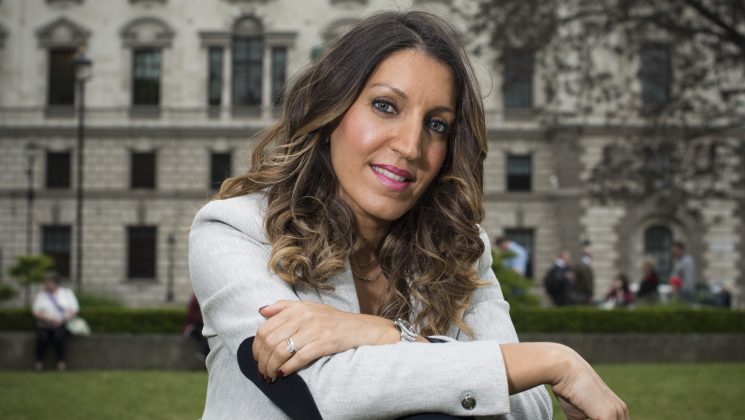
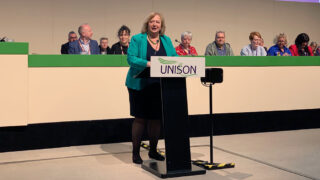
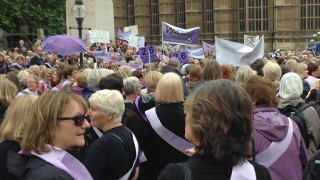
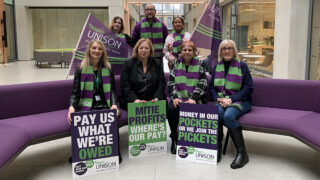
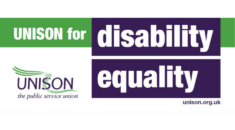
Rosena you are a fantastic person and totally dedicated enjoyed reading.
I am a local Tooting resident and in fact grew up in the 1970s in Balham. I am as well mixed race with grandparents and parents lived in India. Having locked myself out of a previous flat in Battersea and broken a window to get into my home I wrote a letter on Friday 8th March 2019 in the Royal Courts of Justice. It was somewhere to sit. This was addresses on the envelope to UNISON and it requested the union to invest in key rings that would be made to enable the key ring holder to insert a photo as well two phone numbers and health information. The owner of the keys could get a spare set cut or even two sets cut and leave them with friends or relatives who live near them. In the event of losing their keys any finder of the keys may call the numbers on the key ring and let them know they have found the keys. The receiver of this call can then let the person know they have lost their keys. Their are reasons for this. One is an accident. Another is losing keys and here the key holder may not even know that they have lost their keys and the sooner informed the sooner that person can change their behaviour and phone the finder of the keys or meet up with at least one of the owner of the spare keys. Thirdly, people do leave keys in jackets or bags and forget these items and this system would enable the keys to be found. Car keys can be included as well as house keys on a key ring although currently I do not think that car keys have a hole in them. Drill one? How about a key ring the size of a disused matchbox that enables brief details to be added on one side of the matchbox and a photograph on the other side. No-one would want a nurse or doctor to be locked out of their home or car and some people not only the visually impaired may need additional assistance given loss of keys and perhaps other items.